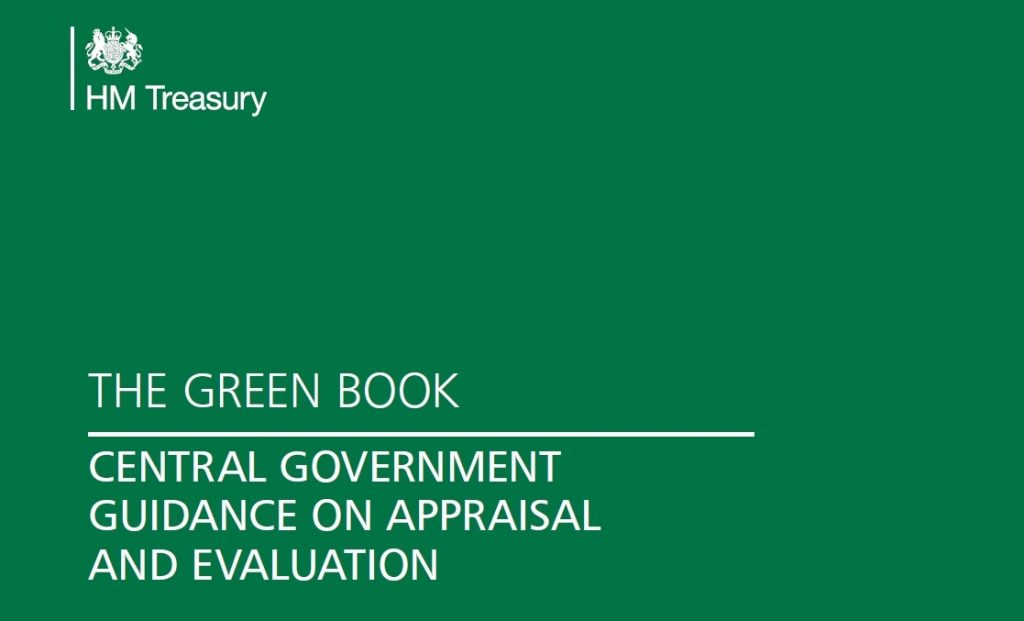BSA Economic Tracker Q1 Q2 Report 2024
This report of the BSA Economic Tracker reflects the responses gathered during the first six editions of the Tracker from January to June 2024 (Q1 Q2). The report also complements and reflects changes since the Q1 Economic Tracker Report published earlier this year. Click here to read the report.
BSA Briefing: Labour’s ‘Plan to Make Work Pay’
This briefing note provides a summary of Labour’s ‘Plan to Make Work Pay’. Click here to read the briefing.
BSA Summary – Labour Party Manifesto 2024
The BSA’s summary of the Labour Party Manifesto 2024. Click here to read the summary.
BSA Summary: King’s Speech 2024
The BSA’s summary of the key bills in the King’s Speech 2024. Click here to read the summary.
The Business Services Sector in the United Kingdom – BSA Report June 2024
In late December 2023, the Business Services Association (BSA) was approached by colleagues from
the Department for Business and Trade (DBT) to discuss a new report on the business services sector.
The project would look at the sector’s size, characteristics, and priorities in relation to growth and
investment. This report therefore provides an overview of the key characteristics and contributions
of the business services sector to the UK economy. Click here to read the report.
BSA Economic Tracker Q1 Report 2024
This report summarises responses gathered through the first three editions of the BSA Economic Tracker survey from January to March 2024 (Q1). It also reflects changes in the economic landscape and experiences of BSA members since the 2023 report. Click here to read the report.
BSA Economic Tracker Report 2023
This report of the BSA Economic Tracker reflects responses to those versions of the survey published between January 2023 and December 2023. These were circulated to all BSA members to complete as the question set was reviewed and refreshed each month. Thank you to all those who completed the various editions of the Tracker survey in 2023. Click here to read the report.
Business Services Association – Who We Are
The BSA has produced a document that explains who we are, what we do, how we do it, and why we do it.
Click here to read.
BSA Net Zero Summit 2023: Government keynote
The Rt Hon Graham Stuart, M.P., Minister for Energy Security and Net Zero, delivered a message to the BSA Net Zero Summit setting out Government’s vision for a more sustainable UK economy and society, and the role service and infrastructure providers can play to achieve this.
Strikes (Minimum Service Levels) Bill – the story so far
Authors: Stephen Miller, Ruth Bonino, and Abarna Harindra – Clyde & Co
9th May 2023
BSA member Clyde & Co have produced the following article on the Strikes (Minimum Service Levels) Bill.
The Bill is intended to provide powers to introduce minimum levels of service during strikes across certain key sectors.
Click here to read the full article.
For further information, or to find out more about the BSA, please contact bsa@bsa-org.com
#IWD2023 Blog: BSA Women in Business Services
Gemma, Head of Operations, and Martha, Policy and Events Officer, at the BSA are really proud to have worked with BSA member NatWest on our series of BSA Women in Business Services events.
BSA members employ such a diverse breadth of talent, experience, and expertise, and we value how much of a priority inclusivity and gender equality is across our sector.
In September 2022, the BSA organised an event with Dame Melanie Dawes DCB, Chief Executive of Ofcom. She shared her experiences over her time in Ofcom and as a senior civil servant, and reflected on how the lessons she learned in the public sector could apply to business services.
(more…)#IWD2022 Blog: Liz Benison, CEO, ISS UK & Ireland

This International Women’s Day, I’ve pledged to challenge the biases that affect all of us in the workplace — from my colleagues pursuing careers at ISS, to my daughter, who will be embarking on her own career path after she graduates from university this year. While much progress has been made since I started working, there’s still a long road ahead to achieving a truly gender-equal world.
(more…)#IWD2022 Blog: Amanda Fisher, CEO, Amey

Diversity and inclusion are usually treated as enhancements, not as core to business success. But organisations need a real strategy to embed diversity and inclusion – not just a series of tactical measures that may or may not add up to a plan.
That’s why at Amey we have Freedom to Perform, a culture where initiatives are aimed at changing the whole workplace rather than being based on the hope that a few more women will be encouraged to fit into existing working practices.
(more…)#IWD2022 Blog: Helen Milligan-Smith, Managing Director, Aramark UK Onshore

As a woman, and a mother, in a leadership role, I’ve always found myself passionate about women in the workplace and the challenges and biases we face, particularly when it comes to the foodservice industry, in which men usually dominate the senior roles.
(more…)#IWD2022 Blog: Catherine Roe, Chief Executive, Elior

In 2021, we set targets to increase the number of women in our leadership team, middle and senior management, and the number of female chefs. We are pleased to be ahead of our target in each of these areas; one of the key activities helping us achieve these aims is our Womentoring programme, specifically aimed at helping female colleagues to fulfil their potential.
(more…)Business Services Sector are ideal partners in government quest for delivery
Guest Blog by Professor Gary Sturgess
The Prime Minister’s Delivery Unit has an honourable history, and the decision by the current Prime Minister to re-establish it is to be welcomed. As a business leader commented to me recently – good government is five percent policy, 10 percent implementation and 85 percent delivery.
In tracing the origins of the PMDU, we must go back to the ‘Next Steps’ report, published by the Efficiency Unit (as it was then called) in 1988. The formal title of this report – ‘Improving Management in Government’ – captured the organisation’s mission, and that one report, written by a small team over a period of several months, had a profound impact on the structure of government over the decades that followed. (And, by the way, ‘Next Steps’ claimed that 95 percent of the Civil Service was concerned with delivery.)
(more…)BSA Cleaning Committee Personal Profiles for World FM Day 2021
Ahead of World FM Day on Wednesday 12th May, members of the Business Services Association’s Cleaning Committee have prepared a series of their personal profiles aimed at promoting the cleaning sector and to celebrate working within Soft FM.
The profiles below are testament both to the rewards of working within the industry as well the variety of potential routes to working within Soft FM.
The BSA Cleaning Committee provides a forum to share industry best practice, including on skills and training, draws up messaging about the sector and represents the interests of cleaning service providers to stakeholders. Thank you to those committee members who have supplied their profiles below.
(more…)BSA Chief Executive discusses business and government
BSA Chief Executive, Mark Fox, joined Adam Boulton’s All Out Politics podcast for Sky News, on Thursday 22nd April 2021, discussing business and government and a round up of the week’s news.
Listen here: https://news.sky.com/story/all-out-politics-podcast-business-v-government-12283944

Comment: Duke of Edinburgh
“Prince Philip was a great champion of innovation, training and enterprise. BSA members send condolences to HM The Queen and the whole Royal Family.”
Mark Fox, Chief Executive

Mark Fox writes…
“We may allow ourselves a brief period of rejoicing, but let us not forget for a moment the toil and efforts that lie ahead.”
Winston Churchill’s words to the nation at the end of the 1945 war in Europe. For us Christmas has passed and the new year has begun. For those that were able to pause for a moment work now resumes. For many BSA members the work of delivering services and projects continued throughout the holiday period.
The Prime Minister made it his political purpose to deliver Brexit and an accompanying new agreement with the EU. This he has done. The passing of the agreement marks a beginning as well as an end. An end to Britain’s intimate relationship with the EU and the beginning of a close one. Over fifty UK/EU working groups have been established to support the new arrangements. The BSA is involved where appropriate and has already been contributing to these work streams.
(more…)HMT Green Book Review – videos
Here are links to three videos by those involved in the Treasury review of the Green Book, as published alongside the Spending Review in November 2020.
Video: Tom Aldred, HMT Green Book Review team lead
Video: Mark Williams, training workstream lead for the Green Book Review
Video: Heads of Professions from across government endorsing the Green Book

BSA/Polar Insight procurement survey published
In Summer 2020, the BSA and Polar Insight partnered on a survey of members to understand the impact of the Covid-19 pandemic on the sector and to explore key factors relating to procurement across the private and public sectors.
Download the survey report here:
https://www.polarinsight.com/bsaprocurementsurvey
Or click here.

Keynote speech – Seminar on Business Values: Learning from Lockdown
Adapted from a keynote speech delivered by Sean Haley, Regional Chairman, Sodexo UK & Ireland, at the BSA’s seminar on Business Values: Learning from Lock Down, 24 July 2020
This year, the world has been thrown into turmoil, but it has also shone a light onto what really matters to people. As governments, businesses and households start to emerge from the crisis phase of the pandemic, we start to build an economic recovery.
Corporate Insolvency and Governance Act 2020
BSA Member CMS Cameron McKenna Nabarro Olswang LLP has produced the following briefing note – setting out the key implications of the Corporate Insolvency and Governance Act 2020.
Read the full post here: https://www.cms-lawnow.com/ealerts/2020/07/corporate-insolvency-and-governance-act-2020
Key workers need more than applause
Since the Covid-19 lockdown was introduced, we have witnessed an incredible industry-wide response, writes Sean Haley, Sodexo Regional Chair.
FM and food providers have repeatedly demonstrated the value of our sector by collectively responding quickly and efficiently. Sodexo and its competitors have played a vital role to set up and operate Covid-19 testing centres and Nightingale hospitals around the country. It has been a Herculean effort that no one foresaw would be needed, but one which was achieved through partnerships that formed within just days.
We have been able to do this because we are an agile, flexible, diverse, caring industry with experts in catering, cleaning through to fire safety, energy, event management and much more. We have shown that we are more than just service providers. We are strategic partners who can adapt, innovate and work in partnership to get things done.
Our people have met the challenge of providing core services safely into hospitals, barracks, schools, factories, test centres and prisons, to name a few. They are often working in extremely difficult conditions, on the front line, adapting to meet new demands and challenges – and they are laying the foundations for our national recovery from this crisis.
Apprenticeship Levy Best Practice
4 examples from BSA Member Corndel of Apprenticeship Levy best practice:
Adecco have started 30 of their furloughed staff on apprenticeship training programmes to prepare them for their return to work post-Covid-19. These apprenticeship programmes have been specifically adapted and personalised to support furloughed Adecco staff at this difficult time. [Read More].
80 apprentices from 36 organisations attended the online webinar last week: Building Connectivity and Trust in a Virtual World. This webinar had been built specifically to help apprentices to adapt to the new circumstances that learners find themselves in. Apprentices were able to submit questions which were answered live by an expert panel. The next webinar in the series has already had 120 apprentices sign up. [Read More]
All UK employers and apprentices are now able to access a dedicated bank of resources on home working, remote management, workplace well-being and resilience. They are available publicly here.
Employers and apprentices are now able to undertake the new Dev Ops Apprenticeships remotely. Dev Ops will be a critical skill set in the post-Corona economy. Corndel has adapted our Dev Ops apprenticeship so that it can be entirely delivered remotely during this health crisis. [Read More]
Crisis management in uncertain times
Mike Penrose, Founder and Chief Executive of the Sustainability Group, draws on his extensive experience in this blog on crisis management.
During periods of uncertainty and crisis it is all too easy to focus on the immediate needs of your organisation and its employees. To deal with the overwhelming amount of work that comes with the necessity to rapid adapt your ways of working, the sheer volume of day to day stuff that needs doing, and most importantly staff welfare and support.
Clients push back work, cashflow gets squeezed and order books get thinner. Some of the measures announced by the chancellor will help organisations through this difficult period, it is an unprecedented bail out, proportionate to these difficult times, and to be widely applauded (unless you are self-employed, but that is another article). (more…)
Putting social value into action
Adapted from a keynote speech delivered by Sean Haley, Regional Chairman, Sodexo UK & Ireland, at the National Social Value Conference 2020
In November last year, the British Academy set out the changes they believe companies need to make to become “purposeful businesses” – changes that they say lie “at the heart of the future of capitalism, the future of humanity and the future of our planet”.
This is not new to Sodexo. We were one of the first few companies in the world to place social value at the core of its mission when it was founded in France in 1966 – and we have always sought to do good business in a good way.
Ten years ago, we published our global corporate responsibility roadmap – Better Tomorrow 2025.
We have plans in place across our business to reduce our impact on climate change, to cut waste, to recruit people from marginalised groups like ex-offenders, to cut plastic from our supply chain, to spend more money with local suppliers and SMEs and promote more women into leadership roles.
This is all well and good but we know that this isn’t enough to meet the challenges we face, because it is not over-dramatic to say that we are living in a time of crisis.
Business, social enterprises & charities must find new ways of working with Boris’ government
Boris Johnson’s huge General Election victory is good news for the political stability and support business needs to succeed. Government will now continue to be a strong support for innovation and enterprise. The principles of the free market and free flowing trade will be re-affirmed in the corridors of power across Whitehall. The fundamental threat posed by Jeremy Corbyn’s Labour party, with the crushing threat to jobs and wealth creation that it represented, has been resoundingly seen off. For those running and employed by businesses of all shapes and sizes – which is the vast majority of us – the Conservative victory is very welcome indeed.
Not only businesses of course compete in the market place. Social enterprises and, although they frequently bridle at the suggestion, so do charities. Charities compete for donations, for public sector contracts to deliver government services at home and overseas, and for our attention and support.
Guest post from Martin Traynor OBE, Small Business Crown Representative
Martin Traynor OBE was appointed Small Business Crown Representative at the start of 2019. In this blog he explains what he has discovered in his first six months in the role and his priorities for the future.
What is the role of the Small Business Crown Representative?
In my role as Small Business Crown Representative I have been asked to lead on the overall relationship between the government and small and medium sized businesses (SMEs), advise ministers on the government’s engagement with them, and to identify the barriers they face when working with government.
The UK government buys a wide range of goods and services from businesses right across the country. This ranges from major rail and road projects, through to fresh food and specialised services to help people find work. Of course it is a big buyer of many of the services that BSA members provide.
BSA investigates the Future of Pensions
John Hanratty, Head of Pensions North at CMS CMNO, and Chair of the BSA Pensions Group facilitated an insightful and constructive roundtable on the Future of Pensions in July 2019.
The BSA invited two guest speakers, Fiona Frobisher, Head of Policy, The Pensions Regulator (TPR) and Richard Giles, Head of Strategic Partnerships, The Pensions Trust (TPT) to provide more detail on the obligations of pension schemes for independent providers.
Digital in Defence: The age of Iron Man technology and sci-fi becoming reality
From Star Trek’s ray guns and Princess Leia’s hologram messages to AI character HAL 9000 from 2001: A Space Odyssey, not to mention video calling, mobile phones, smart watches and tablets, there are numerous examples of sci-fi technologies becoming reality. Defence has long been at the forefront of digital and technological transformation – a driving force for innovation behind everything from the Internet to GPS, inspired by the imagination and ingenuity of science fiction. (more…)
How do we fix the public-private partnership?
By Asif Ghafoor, MD Investments, Amey
In last year’s Autumn Statement, Chancellor of the Exchequer Philip Hammond announced the official death of PFI. He said that the UK government would abolish the use of PFI (along with its successor PF2) for future projects, noting that “I have never signed off a PFI contract as Chancellor and I can confirm today that I never will”.
Living wills are coming in FM – embrace them now to get ahead of the game
Until a couple of years ago, the facilities management (FM) industry appeared to be steering a fairly steady course. True, the rising maturity of the FM outsourcing market was starting to create pressure on providers’ growth and costs. But they could count on a ready supply of existing and new customers—both public and private sector—who felt they could buy their services with confidence.
Negotiating for success in public sector negotiations
John Clements, Management Consultant at The Gap Partnership, details the importance of preparation and planning in the negotiation process for successful tender bids.
Platform co-creation of public services
By Philip Craig, Government Sector Strategy Director at Sopra Steria
One of the often-quoted benefits of digital transformation is the improvement in the way departments interact with citizens and business by sharing systems and data to streamline services. But the reality often falls short of expectations.
Trends shaping the future of the workplace
 Written by Sylvia Metayer, CEO, Worldwide Corporate Services segment, Sodexo
Written by Sylvia Metayer, CEO, Worldwide Corporate Services segment, Sodexo
Today is World FM Day, a chance for the FM industry to raise awareness of how we can help our clients ‘enable positive experiences’. (more…)
Universities must commercialise to thrive after Brexit
Since the increase in tuition fees in 2010, universities have had to adapt to a rapidly changing funding environment. Greater reliance on fees, which account for over two-thirds of total income at 42% of universities, has left their finances vulnerable to sudden changes in student numbers. Concerns over value for money, along with long-term spending commitments on pensions and infrastructure, also weigh heavily.
To be sustainable after Brexit, universities must prioritise the student experience whilst also finding new ways to maximise efficiencies and diversify revenue. (more…)
What’s ahead for the digital wallet?
By Rob Price, Chief Operating Officer, Worldline (Atos e-payment Services), UK and Ireland
When I drive to my local railway station, the station car park recognises my arrival through number plate recognition. I drive straight in, with digital signage telling me how many spaces are free. I walk through the station and get straight on the train. When I return, the car park transaction is quick and easy – contactless card or mobile wallet payment at the kiosk, and the exit barrier lifts as it recognises my number plate.
I like this digitalised experience because it makes things quicker and easier for me.
This is a common theme of the global digital inclusion survey we’ve just completed, which revealed how people feel about digital technologies – including how they pay for things. It’s clear that where the consumer is motivated or incentivised through personal benefit, then there is better adoption. Other than cost savings, the two benefits that stand out for consumers are time saved and improvements to their health. (more…)
Light at the end of the financial tunnel?
By Philip Craig, Government Sector Strategy Director at Sopra Steria
In March 2018 the government reached a significant economic milestone. It eliminated the deficit on its day-to-day budget. Tax revenues will exceed public spending. Public sector net debt will fall for the first time since 2001-02. It took eight years rather than five. But the primary target set by government in 2010, as the UK struggled to recover from the financial crisis, had finally been met. (more…)
AI and Digital Public Services
Often debated in terms of the ‘rise of the robots’ or ‘march of the machines’, the public discussion around artificial intelligence (AI) has largely focused on the impact it may have on the workforce. Less attention has been paid to the possibilities for transforming public services.
Appropriately delivered, AI has the potential to revolutionise how public services are delivered and, in turn, how citizens interact with government.

BSA Event: The path to digitising healthcare

As part of a series of events and publications on digital public services, the BSA held a Digital Healthcare seminar in partnership with Associate Member Pinsent Masons LLP. With thanks to our speakers:
- James Hawkins, Director of Programmes, NHS Digital
- Rachael Hunter, Health Economist, UCL
- Matthew Godfrey-Faussett, Partner, Pinsent Masons
Britain’s Energy Future
Last month the Business Secretary Greg Clark announced £246 million of pubic investment into battery technology. Known as the ‘Faraday Challenge’, this 4 year investment aims to update British energy generation and provide an alternative way of generating and delivering energy. The challenge aims to produce new, more efficient battery technology that will make energy easier to store.

The workforce of the future: robots and roadmaps

Transformation is the business buzzword of this generation. Preface it with digital, leadership, cultural or service and you’ll find a slew of articles, comment pieces and case studies on how it’s been done and why everyone should try it. In reality, it boils down to change. We live, as they say, in “interesting times” and one of the striking features of this age is the pace of development.
The Importance of Transparency
Blog by Kevin Craven, Chief Executive, UK Central Government Division, Serco
As an ex-employee of Sodexo, I was pleased but not surprised to see the launch of their Transparency Charter recently. I applaud their leadership and congratulations to them. As the CEO of Serco’s Central Government division, I am of course frustrated that they got there before us. But I suspect we will look back in a more transparent future and not worry about who got there first, because consensus is building around the need for greater transparency in the delivery of public services and the momentum seems unstoppable. There are of course those that oppose it vehemently but they are now firmly in the minority.
